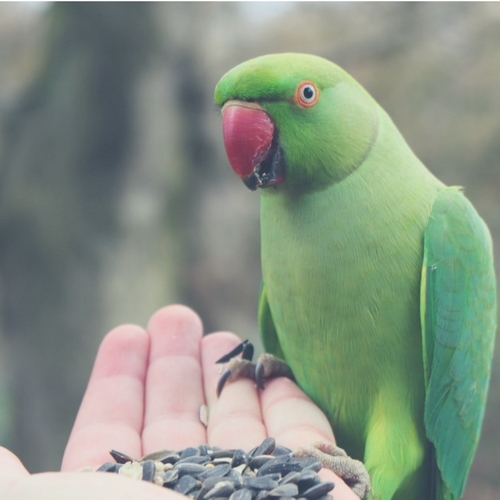Easy, convenient and useful pet tips to help you learn more on how to understand your pet.
Puppy/Kitten Tips
- Grooming is a great way to bond. It also gives you a close look at the health of their skin and coat.
- Water daily. Clean, fresh water keeps them hydrated and avoids bacteria and contaminants.
- Don’t feed “people food” It can lead to nutritional imbalances, obesity and behavioral problems (like begging)
- Puppies and kittens have tiny tummies. Feed 3-4 times per day for the first 6 months, reducing feedings as they approach 1 year.
- Choose the right food. Look for the Association of American Feed Control Officials (AAFCO)statement, ensuring your pet’s food is designed for growing, active pets.
Caring For Your Dog
- Keep him strong with ounces of prevention
- Choose the right food
- Brush your dog’s teeth
- Avoid over-bathing your dog. Excessive bathing can lead to sensitive skin issues.
- Even a little extra weight can be a big problem.
- Consult your vet about your dog’s heath and treatment
- Puppies need balanced nutrition to get a strong start in life with higher fat and calories, DHA for brain development and antioxidents for their immune system.
- Adult dogs need appropriate levels of fat and calories to promote optimal body conditioning helping your dog build strong bones and muscles while promoting a strong immune system.
- Mature adult dogs require controlled levels of calcium and phosphorus for long-term organ health to help your dog stay young and live longer.
Tips for Indoor Cats
- Know how your other pets will interact before bringing a cat home
- Increase playtime to help her stay fit and healthy
- Provide your cat with toys and activities to play on her own
- Brushing her will increase bonding time and decrease hairballs
- Feed your cat a formula that’s specifically designed for indoor cats
- Brush regularly
- Give your cat plenty of toys to maintain alertness and the exercise needed for a healthy body.
- Get a scratching post
- Stay current on your cat’s shots by communicating with your vet.
Healthy Birds
- Your companion bird counts on you for the nutrition he needs, and what you feed him has everything to do with his health, happiness and longevity.
- Seeds, nuts, fruits, vegetables, and home cooked foods may and seem to be healthy, but they vary in nutritional composition your bird may be getting too much or too little of certain nutrients. An unbalanced diet is a primary cause of obesity and early death in pet birds.
- Feed no more than 20% every day of the following combination of foods:
- Seeds: High in fat and deficient in many important vitamins, minerals and amino acids
- Nuts: High in fat and vary in nutrients, depending on the type
- Fruits & Vegetables: Provide nutrients, but can be high in sugar and carbs
- Home cooked foods: may be nutritious for you, but not always for your bird
- A well-balanced, high quality formulated diet helps assure your bird gets the precise nutrition he needs every day.
Reptile Tips
- Size matters when you’re considering a reptile for a pet. Contrary to popular belief, housing your reptile in a small tank does not mean that your reptile’s growth will be stunted.
- Think carefully about what kind of cage or vivarium your reptile will need. Reptile homes need to provide enough space for mobility and must be escape-proof, both for your safety and his.
- There are commercially available diets for some reptiles; however, most need fresh food. For example, some require food such as mealworms and mice while others may need fresh fruits and vegetables to make up the majority of their diet.
- Cold-blooded creatures cannot maintain their body temperature within the range necessary. Your pet will count on you to regulate his environment. Make sure you have appropriate heating devices and temperatures required for the reptile you choose.
- Reptiles are used to environs where they can create stable humidity. They control this by burrowing, or moving to a micro-climate that meets their needs. When they are captive, they do not have this luxury. Depending on the reptile’s needs, you will need to provide a way to regulate humidity. This could include preparing a vivarium with an aquatic water filtration in part of the tan, and dry terrarium setup in another part. A humidity alert device is also a good idea, so that you can stay informed on the conditions your pet is living in.
- Cold-blooded creatures cannot maintain their body temperature within the range necessary. Your pet will count on you to regulate his environment. Make sure you have appropriate heating devices and temperatures required for the reptile you choose.
- Routine cage maintenance is key to your reptile’s health. Reptiles are susceptible to skin and bacterial infections. Their fecal matter can carry diseases such as salmonella that can be harmful to humans. The cage, furnishings and cleaning equipment itself should be regularly cleaned and periodically disinfected.
Tips for Fish
- Get an appropriately sized tank. Look up the minimum tank size for each fish.
- Perform partial water changes weekly. 20-30% is a good amount. To do a water change, get a gravel vacuum and siphon out any waste in the substrate.This will pull out water at the same time. Replace the water with water from your tap, but remember treat it with a water conditioner.
- Monitor your fish. While they eat, sit and actually observe them. Check for anything strange: changing color, falling off fins, damaged tails, etc. Also, make sure all of your fish are getting along.
- Try not to stress out your fish. This includes putting your hand in the tank when you don't need to, touching them, or jumping near the tank.

